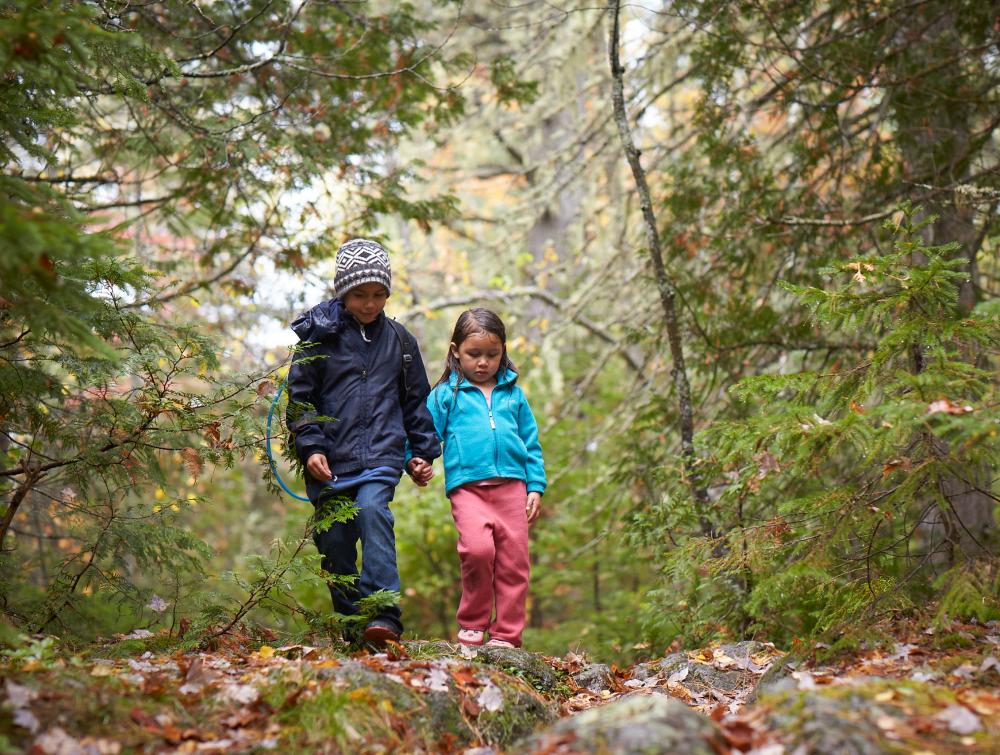Public lands bill is a bipartisan victory

Elliotsville Plantation, Inc
By passing far-reaching public lands legislation, Congress has embraced a core American value – conservation and protection of our nation’s wild lands and waters. For the new Congress, it’s a strong start and an opportunity to turn the corner after two years of backsliding by the Trump Administration and its allies on Capitol Hill.
Dubbed the John D. Dingell, Jr. Conservation, Management, and Recreation Act, S. 47 protects more than two million acres of cherished public lands, hundreds of miles of wild and scenic rivers and numerous historic sites. It also secures our nation’s premier conservation funding program. These public lands, which belong to all of us, provide abundant clean air and drinking water, essential wildlife habitat and expansive landscapes for outdoor traditions and recreation.
Consider the sweeping scope of the bill, which the President is scheduled to signed on March 12, 2019
S. 47 permanently reauthorizes the Land and Water Conservation Fund, which had expired last fall. Created in 1965, this vital program leverages a small portion of public off-shore oil royalties to invest in national and local parks, in neighborhood rec centers and in access to hard-to-reach public lands. This program has delivered benefits to virtually every county in the U.S.
The bill permanently preserves an additional 1.3 million acres of wilderness located on public lands in New Mexico, Utah, California and Oregon.
The lands bill extends for seven years the Every Kid in a Park program, which seeks to connect more youth with outdoor opportunities, in part by providing fourth grade students and their families free admission to all national parks and other federal lands.
The bill also makes progress toward making sure our national parks and monuments tell the full story of America by establishing several new national monuments. They include the Medgar and Myrlie Evers home in Mississippi, which honors their civil rights legacy and the deadly price Medgar Evers paid for his courage, two Civil War sites in Kentucky which tell the stories of African American Union soldiers, as well a site in Utah that is rich with prehistoric fossils and a memorial to the Saint Francis Dam disaster in California.
And recognizing that some places deserve to remain wild and conserved in their natural state, the bill permanently withdraws 370,000 acres of the public land from mineral leasing, protecting them from mining and drilling in regions like Yellowstone and the North Cascades.
These far-sighted decisions – strongly supported by Democrats and Republicans – are a far cry from the extreme, drill-anywhere agenda the Trump Administration has pursued over the objection of people across the country.
This congressional victory for conservation is long overdue. Protecting our lands, water and wildlife has strong support across the political spectrum, and yet the 115th Congress pushed a number of extreme, anti-conservation proposals, most of which were defeated after the public caught wind of them. Meanwhile, the Trump Administration continues their push to drill for oil in the pristine Arctic National Wildlife Refuge in Alaska – one of the wildest remaining sanctuaries on earth. Underfunding of federal lands management has set back progress on basic care and stewardship of our lands. Attacks continue on carefully designed plans to conserve sage grouse habitat in the West and the Roadless Rule, which protects our wild forests.
Let this bill serve as a turning point.
The 116th Congress is off to a strong start but people are counting on their elected leaders to build on this progress. Constituents are demanding that Members of Congress serve as a check against the Trump Administration’s attempts to roll back safeguards, recklessly sell out public lands to energy companies and silence the voices of people in local communities. Many additional, locally driven conservation proposals also await action by Congress.
Above all, Congress has an urgent responsibility to address the threat of climate change, and our public lands have a critically important role to play. More than one-fifth of our nation’s carbon pollution originates from energy development on public lands and waters. Wise choices that promote the clean energy we need and protect the places we love will make a huge difference.
This is a moment to celebrate. But we can’t afford to rest on our laurels, or worse, move backwards. At stake is the health and wellbeing of future generations as well as our own.
Jamie Williams is president of The Wilderness Society
